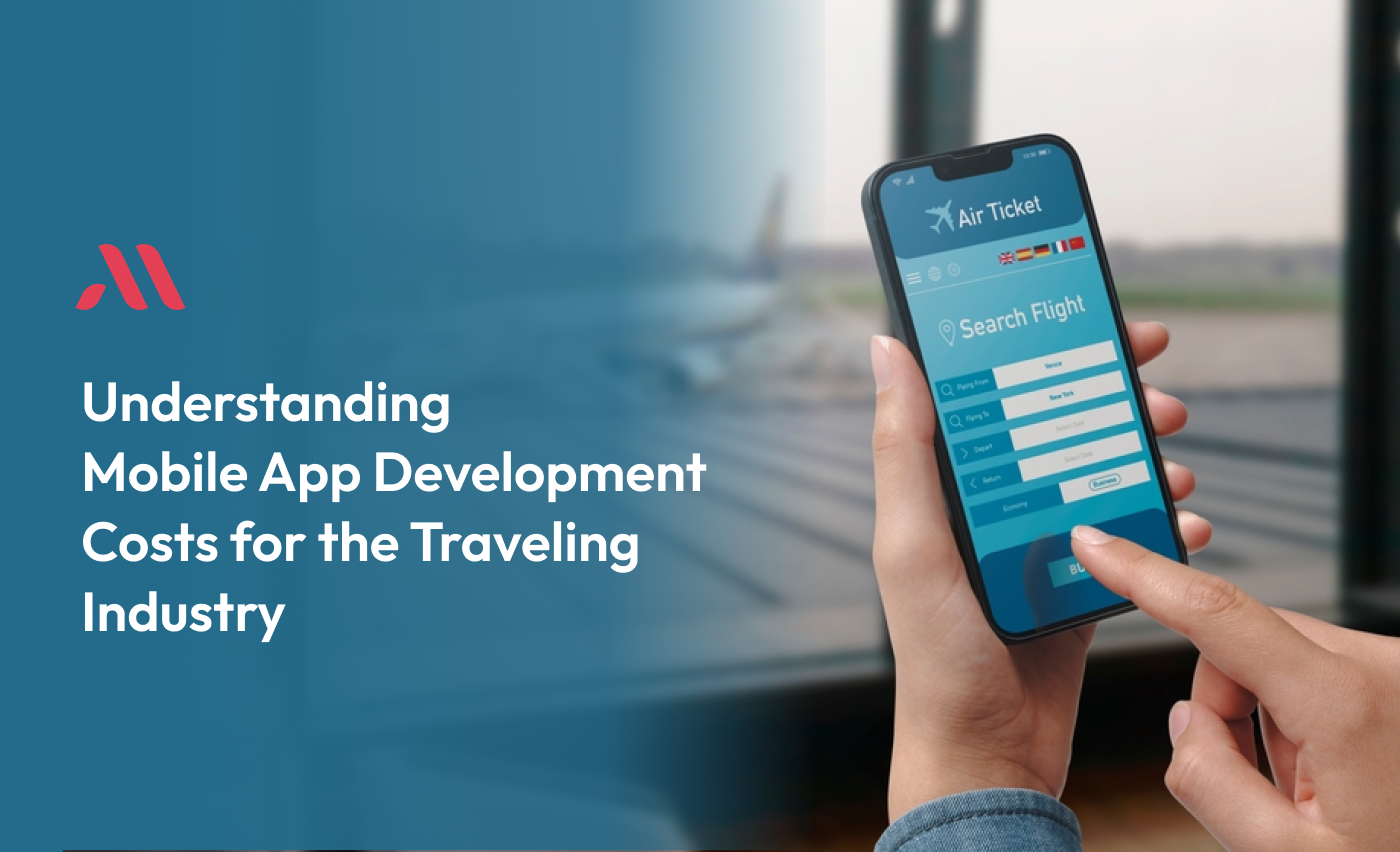Mobile apps are everywhere these days, making life easier and more fun. If you're a travel agent or own a traveling website, having your own mobile app can help your business grow. But how much does it cost to develop a mobile app for the traveling industry? Let's break it down in simple terms.
Why Does the Traveling Industry Need Mobile Apps?
The traveling industry benefits greatly from mobile apps. Here are some reasons why:
Convenience: Apps make it easy for travelers to book flights, hotels, and tours.
Information: Apps provide important information about destinations, weather, and travel tips.
Customer Service: Apps provide quick customer support and help with any travel issues.
Personalization: Apps can provide personalized recommendations based on a traveler’s preferences.
Loyalty Programs: Apps can manage reward points and special provide for frequent travelers.
By having a mobile app, travel agents and traveling website owners can provide a better experience for their customers.
Factors Affecting Mobile App Development Costs
When it comes to mobile app development, costs can vary widely. Here are some factors that can affect the price:
1. App Features
The more features your app has, the more it will cost to develop. Simple apps with basic functions like booking and information will cost less. But if you want advanced features like live chat support, GPS tracking, or virtual tours, the costs will go up.
2. Design and User Interface
A good-looking app with an easy-to-use interface is important for the traveling industry. High-quality design takes time and money. If you want custom designs and animations, it will cost more.
3. Platform
Do you want your app to work on both iOS (Apple) and Android (Google) devices? Developing an app for both platforms will cost more than developing for just one.
4. Development Team
The cost also depends on who you hire to build your app. Hiring a professional mobile app development company can be more expensive, but you’ll get a high-quality product. Freelancers can be cheaper, but the quality can vary.
5. Maintenance and Updates
Once your app is live, it will need regular maintenance and updates to fix bugs and add new features. This ongoing cost is important to consider.
Estimating Mobile App Development Costs
Now that we know the factors that affect costs, let's talk numbers. Here are some rough estimates:
1. Simple App
Basic features like booking and information
Basic design and user interface
One platform (iOS or Android)
Cost: $10,000 - $30,000
2. Moderate App
More features like user accounts, GPS, and reviews
Better design and user interface
Both platforms (iOS and Android)
Cost: $30,000 - $70,000
3. Complex App
Advanced features like live chat support, virtual tours, and personalization
Custom design and animations
Both platforms (iOS and Android)
Cost: $70,000 - $150,000 or more
Remember, these are just estimates. The actual cost can vary based on your specific needs and the mobile app development company you choose.
Tips to Save on Mobile App Development Costs
Here are some tips to help you save money on mobile app development:
1. Start Small
Begin with a simple version of your app with only the most important features. You can always add more features later as you get feedback from your users.
2. Use Templates
Using pre-made design templates can save you money on custom designs. They might not be as unique, but they can still look professional.
3. Hire Wisely
Compare different mobile app development companies and freelancers. Look at their past work and read reviews.
4. Plan Ahead
Carefully plan out what you want your app to do before you start development. Changing your mind halfway through can add to the costs.
5. Test Thoroughly
Make sure to test your app thoroughly before launching it. Fixing bugs after launch can be more expensive.
Additional Costs to Consider
When developing a mobile app for the traveling industry, there are some additional costs you should consider:
1. Marketing and Promotion
Once your app is ready, you’ll need to let people know about it. Marketing and promoting your app can cost money. This can include creating ads, hiring a marketing team, or using social media to spread the word.
2. Legal and Compliance
Depending on where you are located and where your app will be used, there can be legal requirements to consider. This could include privacy policies, terms of service, and compliance with local laws. Hiring a lawyer to help with these can add to your costs.
3. Third-Party Services
If your app uses third-party services like payment gateways or map services, there could be additional costs. Some of these services charge fees based on usage, so it's important to factor this into your budget.
4. Training and Support
Your team needs training to manage and update the app. Providing customer support for your users can also be an ongoing cost. You might need to hire additional staff or use a third-party service for this.
Making the Most of Your Budget
To get the best value for your money, it's important to plan carefully and make smart choices. Here are some ways to make the most of your budget:
1. Set Clear Goals
Know exactly what you want your app to do and who your target audience is. Setting clear goals will help you stay focused and avoid unnecessary costs.
2. Prioritize Features
Decide which features are most important for your app and focus on those first. This will help you create a useful app without spending too much money.
3. Choose the Right Team
Pick a mobile app development company that fits your budget and has a good track record. Look for reviews and ask for samples of their previous work.
4. Monitor Progress
Stay involved in the development process and keep track of progress. This will help you catch any issues early and make adjustments as needed.
5. Plan for the Future
Think about how your app will grow and change over time. Plan for future updates and improvements so you can continue to provide a great experience for your users.
Also Read - Understanding Web Development Costs for the Traveling Sector
Additional Considerations for Mobile App Development Costs
1. User Testing and Feedback
Before launching your app, it's important to test it with real users. User testing helps identify any usability issues or bugs that need fixing. Gathering feedback from testers can also provide info on how to improve the app before it goes live. While this step doesn't directly add to development costs, it's an important investment in ensuring your app meets user expectations.
2. Security Measures
Security is important, especially for apps handling sensitive information like travel bookings and personal details. Implementing robust security measures can add to development costs but is important for protecting user data and maintaining trust. This can include encryption, secure authentication methods, and regular security audits.
3. Integration with External Systems
If your app needs to integrate with existing systems or third-party services (like airline booking systems or hotel databases), development costs can increase. Integration requires additional time and effort to ensure easy communication between your app and external systems, maintaining data accuracy and reliability.
4. Scalability
Consider future scalability when planning your app. As your user base grows and you add more features, your app should be able to handle increased traffic and data without performance issues. Building a scalable architecture from the start may involve higher upfront costs but can save money in the long run by avoiding major reworks as your app evolves.
5. Compliance with Industry Standards
Depending on your target market and the nature of your app, you may need to comply with industry standards and regulations (such as GDPR for handling European users' data). Ensuring compliance adds legal and technical considerations that can affect development costs, including additional documentation and testing requirements.
Conclusion
Understanding mobile app development costs for the traveling industry is important if you want to create a successful app for your travel business. By considering the factors that affect costs and following some money-saving tips, you can develop an app that helps your customers and grows your business without breaking the bank.
Whether you’re a travel agent or a traveling website owner, a well-made mobile app can make a big difference. So, start planning your app today and take your travel business to the next level!
Ready to take your travel business to new heights? Explore how MicraSol can create a cost-effective mobile app customized for the traveling industry. Let’s simplify your journey to success with our expert app development services. Contact us today and start your app adventure!
FAQS
1. Why does the traveling industry need a mobile app?
Mobile apps make it easier for travelers to plan and book their trips. They provide convenience by helping users to access travel information, book accommodations, and get real-time updates on their trips.
2. How much does it cost to develop a mobile app for the traveling industry?
The cost of developing a mobile app for the traveling industry can vary based on several factors. Simple apps with basic features may cost between $10,000 to $30,000, while more complex apps with advanced features can range from $70,000 to $150,000 or more.
3. What factors affect the cost of mobile app development?
Many factors influence the cost of mobile app development, including the complexity of features, design and user interface requirements, the platform (iOS, Android, or both), the development team hired, and ongoing maintenance and updates.
4. How can travel agents and traveling website owners save money on app development costs?
To save money on app development, start with a simple version of your app and add features gradually based on user feedback. Consider using design templates, compare different development companies, plan your app features carefully, and thoroughly test your app before launch to avoid costly fixes later.
5. What are some tips for creating a successful mobile app for the travel industry?
Focus on providing important travel services like booking, information, and customer support. Design an intuitive and user-friendly interface, ensure compatibility across different devices, and regularly update your app with new features and improvements based on user needs and feedback.








